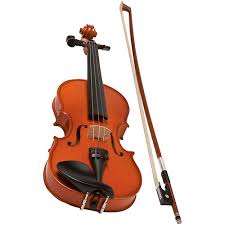
“Miriam the prophetess
took her drum in her hand, and all the women went forth after her with drums
and with dances.” (Exodus
15:20)
Rashi,
commenting on the Mechilta of Rabbi
Yishmael, says that the righteous women of that generation brought instruments
with them due to their confidence in Hashem’s miracles. They knew the geula
(redemption) was coming and prepared for celebrating it while still in Egypt.
Song has a special place in our tradition, and some of us feel a special
communication with Hashem through music. Yet Jewish women don’t always have the
opportunity to express themselves due to the halachas of kol isha
(the intimacy of a woman’s singing voice). So, what can they do to connect to
Hashem through music?
* * *
I want
to share some examples of what women in our community are creating to inspire
themselves and others and to connect to Hashem.
I grew
up in a musical family and began studying classical piano at the age of five. Throughout
my youth and college, I also studied guitar and music theory. I sang in
numerous choirs, composed music, and performed in many different venues. Music
was a major part of my life, even though I ended up pursuing a different
vocation. But Hashem beckoned. I became completely observant, and all my vocal
performances ended. I stopped composing because what I had previously expressed
in lyrics no longer interested me. My story is in no way unique. I have spoken
to many women who followed similar paths.
After
college, I moved to our wonderful Baltimore community. Throughout the years,
there have been various performance opportunities for women but no ongoing music
groups for adult women.
We had a
wonderful trailblazer in Baltimore, Dina Blaustein, a”h, who, along with
some other very talented women in town, started the band Encore. (I was a
member of the band before it became Encore but had to “retire” when
child-rearing and work took all my time.)
Fast forward to 2000: My dear friend Dina made a musical shidduch
between Stephanie Rabinowitz and me. We started making music together and doing
some performing. The next year, Stephanie met Shalomis Koffler, and the band
Ayelet HaShachar was born. We performed original music here in Baltimore, in
cities on the East Coast, and in Israel. After over 20 years, our band has
“retired” because Stephanie and Shalomis were zochah (merited) to make aliyah.
We actually just finished recording new music together. (See www.ayeletmusic.org.)
In the
last 20 years, the music world for women has really exploded. ATARA (The Arts
and Torah Association, www.artsandtorah.org) is a professional organization “committed to both
Torah observance and the development and expression of creative talent.” There
are all kinds of opportunities for kol
isha-observant women in cities across
the U.S., England, South Africa, and especially Israel.
* * *
As
Ayelet HaShachar was winding down, a good friend of mine said that she really
wanted an opportunity to sing. It started me thinking about whether I could
bring that opportunity to connect to Hashem through music to other women in our
community. Would there be interest?
The
answer was a resounding yes. I started Kol Zimrah Baltimore Women’s Choir in
January 2019. Most of the original members are still in the choir, and each
year, new members have joined. Most of the songs we sing are tefilot
(prayers) with the words of tehillim, Tanach, piyutim, and zemirot
set to music that I have composed or have arranged for women’s voices. We sing
other inspiring Jewish music as well. The theme of all the music is praise of
Hashem. And we do it together.
Rehearsing
during the pandemic was quite a challenge, and we used Zoom in creative ways,
including making a “virtual choir” video, put together by our member Tessa
Lebinger. I’ll send the YouTube link upon request. We resumed in-person
rehearsals about a year ago (with masks!), and finally performed again on Rosh
Chodesh Elul as part of Ner Tamid’s Women’s Hallel program, which Rebbetzin
Hindy Motzen started before the pandemic. Since Rosh Chodesh is known as a woman’s
holiday, what better time for women to sing out to Hashem together in this most
beautiful expression of praise? The morning ended with a special performance by
the renowned singer Elena Tal, another Baltimore woman finding ways to continue
singing while keeping the laws of kol isha.
One of
my choir members put it well: “The thing I love the most about Kol Zimrah is
what happens when our voices combine and blend. It’s other-worldly, and I feel
like the Shechina (Hashem’s presence) is with us.” May we all be blessed
to sing Hashem’s praises and feel the Shechina in Yerushalayim soon!
For more information about Kol
Zimrah, please contact me at kzbchoir@gmail.com.






